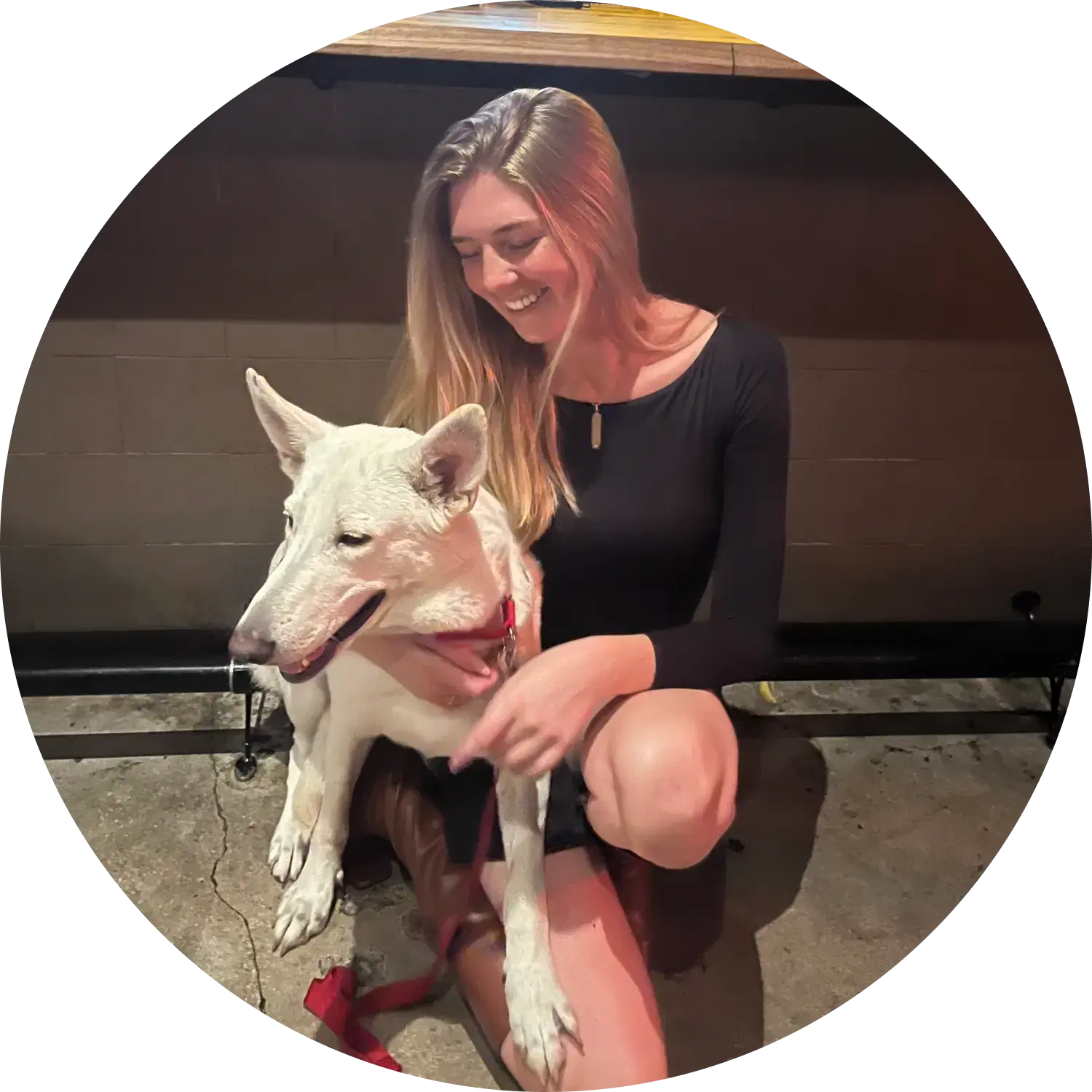Cinnamon is one of the most famous spices out there. It’s featured in many different baked goods: snickerdoodles, pumpkin pie, cinnamon rolls, etc.
Since there are so many different treats with cinnamon in them, you may be worried that your puppy will manage to get ahold of one. Or maybe your pup’s begging eyes are a little hard to resist. How will cinnamon affect your dog?
Spices and seasonings can be a bit more dangerous for pups than other foods since they can be more concentrated. That means that a smaller amount can cause problems. It’s better to wait to give dogs spices or seasonings until after you’ve read up on their possible effects.
At Spot Pet Insurance, we’re dedicated to making sure that you and your pup can live a happy and healthy life together. As pet parents ourselves, we know that our pets can sometimes get into things they aren’t supposed to, and researching everything can be a little overwhelming.
We’re here to help. Not only do we provide personalized insurance plans, but we have educational resources for pet parents who are looking to learn more about their pets and how to care for them.
So can your pup have cinnamon? Yes and no. Dogs can have cinnamon, but it can cause problems depending on how you give it to them and how much. Continue reading to learn more.
Is cinnamon toxic for dogs?
There are plenty of human foods that are good for dogs, but many other human foods are dangerous for dogs to eat. The same categories apply to spices and seasonings. Some foods fall into a third category, too — they aren’t good, but they aren’t bad either.
Which category does cinnamon fall into? Cinnamon is actually pretty good for dogs. It has lots of health benefits, and it doesn’t have any toxic components. However, too much cinnamon can be bad for dogs.
If your dog manages to get into your cinnamon store, you don’t need to worry about your pup being poisoned, but it’s still a good idea to call a vet if they eat a large amount. They can help you figure out how to help your pup manage the consequences of eating a lot of cinnamon and determine if a check-up is necessary.
The different forms of cinnamon can also cause problems when consumed, especially the powder. It’s probably best to avoid giving your dog cinnamon powder if you decide to have your pup try some of this fragrant spice.
What problems does cinnamon cause for dogs?
Although cinnamon is healthy in small amounts, if your pup eats too much cinnamon, it can lead to vomiting, liver disease, diarrhea, low blood sugar, and changes in heart rate. Although these conditions generally aren’t fatal, they can be uncomfortable.
The amount of cinnamon that will cause problems will vary from dog to dog. Small dogs can experience bad effects after having a smaller dose than a large dog.
Another factor can be how concentrated the cinnamon is. Some people have made oils using cinnamon, and the cinnamon is much more concentrated in the cinnamon essential oil. This means that a smaller dose can cause problems.
Large amounts of cinnamon cause more uncomfortable problems, but sometimes cinnamon can irritate your dog’s mouth. That said, some dogs can be more sensitive than others.
The final issue with cinnamon is that the powder can be inhaled accidentally. This can lead to difficulty breathing, coughing, and choking.
Cinnamon is relatively safe for your dog to eat; you just need to keep an eye out for potential problems and keep your dog from consuming too much.
Does cinnamon have any health benefits for dogs?
Now that we know the potential problems that come with feeding your pup, we can look at the potential health benefits for dogs. A small amount of cinnamon can help with many different issues.
Cinnamon may be able to:
Regulate blood sugar levels
Help decrease high blood pressure
Make use of antioxidants, which help prevent cell damage
Fight off fungi
Make use of anti-inflammatory abilities
As long as you give your dog the right amount of cinnamon, it can help keep your dog healthy and happy.
Are there any specific ways to give my dog cinnamon?
As we’ve mentioned, powdered cinnamon can cause problems if it’s accidentally inhaled, so you may want to consider other ways of giving your pup cinnamon. There are plenty of different ways to give your dog cinnamon.
In their food
Instead of giving your dog cinnamon powder alone, you can mix a small amount in with your pup’s food, whether you make it at home or feed them kibble. Cinnamon can be a great way to spice up your furry family member’s meals.
Avoid cinnamon essential oil
Although cinnamon essential oils might seem like a good option, they are too concentrated for dogs to eat (and often aren’t safe for any consumption), so it would be better to avoid them.
Cinnamon sticks
Cinnamon also comes in the form of a stick, but giving it to your dog is probably not the best way to get your dog to try cinnamon. It would be like eating a spoonful of ground cinnamon, just more crunchy.
Cinnamon dog treats
There are also plenty of cinnamon treats that you can make or buy for your dog with other dog-friendly foods. It’s important to make sure these foods are specifically for dogs since human treats with cinnamon often contain things that can be harmful to dogs.
Can I give my dog cinnamon bakery treats?
Many delicious baked goods have cinnamon in them. The question is: Can we use them as treats for our dogs?
Unfortunately, these treats contain a lot of ingredients that can be harmful to your pup. They have high amounts of sugar, and they can also have ingredients that are poisonous to dogs.
Dog’s digestive systems aren’t really built to handle a lot of sugar, so the excess usually ends up in their blood, which can lead to health issues like hypoglycemia.
The other issue is potentially dangerous foods being added to the baked treat. Cinnamon is often paired with other spices and foods, like nutmeg or chocolate, that are toxic for dogs.
Although these baked goods are delicious treats for us, they aren’t the best option for our dogs. However, if your dog accidentally gets a hold of one, you should check the ingredients. If they don’t have ingredients that are harmful to your dog, you don’t need to worry. Just try to keep them from getting into them again.
Is it worth it to give my dog cinnamon?
Cinnamon has many benefits for dogs, especially those with issues like high blood pressure, but there are also some risks involved. Is it worth it to add cinnamon to your pup’s diet?
It mostly depends on how much time and effort you are willing to put in. After all, cinnamon isn’t really something you could use as a treat, unlike asparagus or pineapple. However, you can add small amounts to your dog’s meals or bake or buy doggy biscuits with cinnamon.
It’s important to remember that an overdose of cinnamon can cause health issues for your pup. Before you give anything to your dog, you should discuss your pup’s diet with a licensed veterinarian. They can advise you on how much cinnamon could be helpful for your dog and make sure that your pup’s diet works for them.
As a pet parent, it’s your job to make sure your dog is well-fed and happy. This may seem like a tall order, but it’ll be worth it once you see your dog content and happily wagging their tail.
What Your Dog Can Eat As Well
There’s no shame in wanting to give our dogs whatever food will make them happy. There just happens to be many other choices out there that are much healthier and more nutritious than pretzels. Here is a list of all the junk foods that your dog can eat.
Fruits
There are many fruits that dogs can eat which are packed with vitamins, dietary fibers, and antioxidants. The best are berries like strawberries, blueberries, cranberries, and raspberries. Dogs can eat bananas, oranges, apples, melons, mangos, and pineapples. Make sure fruits with pits, stems, cores and seeds have been ridden from these items. Several of them are choking hazards and peach pits can be toxic. Grapes of any kind are poisonous to dogs, and even raisins shouldn’t be given to them.
Seafood
When seafood is free from shells, tails, bones, and legs, they are safe for a dog to eat. Dogs can have lobster, shrimp, salmon, crab, tuna, flounder, and a variety of other fish that is lower in mercury. Fish with too much mercury fed too often to our dogs can cause mercury poisoning. Uncooked or undercooked seafood can contain harmful pathogens and bacterium like salmonella which can make a dog extremely ill. Always ensure that seafood is thoroughly cooked before feeding it to your dog.
Beans
Beans can be great sources of dietary fiber and proteins which are necessary for a dog’s health. Dogs can have a wide variety of beans, including lima beans, pinto beans, black beans, garbanzo beans, soybeans, butter beans, kidney beans, navy beans, and even green beans. Beans should always be cooked thoroughly and fed to dogs in moderation to avoid tummy aches. Beans shouldn’t replace meat in a dog’s diet, since the meat they eat is a richer source of proteins.
Vegetables
As stated earlier, garlic and onions contain toxins that are bad for dogs, and even seasonings containing traces of these vegetables could cause problems. Avocado is another poisonous food because it contains a toxic chemical called persin. Other veggies are considered great sources of fiber and vitamins for dogs. Dogs can eat carrots, pumpkins, spinach, celery, brussels sprouts, broccoli, kale, and many other vegetables instead.
Nuts
Most nuts aren’t toxic to dogs, save for walnuts and macadamia nuts. Other nuts aren’t necessarily poisonous, but they can contain lots of salts, fats, and proteins that are difficult to digest. They also aren’t very practical because they can be choking hazards due to their shapes, sizes, and shells. Cashews, almonds, and pistachios are fine for dogs to eat moderately, especially when they are made into butter which is safer to eat in terms of obstruction.

The resident animal enthusiast at Spot. I have a lifetime of pet parent experience. If it has fur, feathers, or scales, I’ve probably shared my home with it. I aim to be a reliable source, blending experience with a dedication to the well-being of pets.
*Jan 2019 to Aug 2024 Spot Pet Insurance Services, LLC claims data.
Anna Burke, et al. “Can Dogs Eat Cinnamon?”
American Kennel Club, 9 Aug. 2022, www.akc.org/expert-advice/nutrition/can-dogs-eat-cinnamon/.
Lee-Smith, Adam. "Can Dogs Eat Cinnamon?" Wag!, 14 Jun. 2024, https://wagwalking.com/wellness/can-dogs-eat-cinnamon.
Walther, Ricky. "Can Dogs Eat Cinnamon? Here’s Everything You Need to Know." Pawlicy Advisor, 22 Apr. 2025, https://www.pawlicy.com/blog/can-dogs-eat-cinnamon/.
"Can Dogs Eat Cinnamon? How to Safely Feed Dogs Cinnamon." MasterClass, 24 Mar. 2022, https://www.masterclass.com/articles/can-dogs-eat-cinnamon.
Arnold, Victoria Lynn. “Can Dogs Have Cinnamon?” PetMD, 28 Sep. 2023, www.petmd.com/dog/nutrition/can-dogs-have-cinnamon.
The information presented in this article is for educational and informational purposes only and does not constitute or substitute for the advice of your veterinarian.












